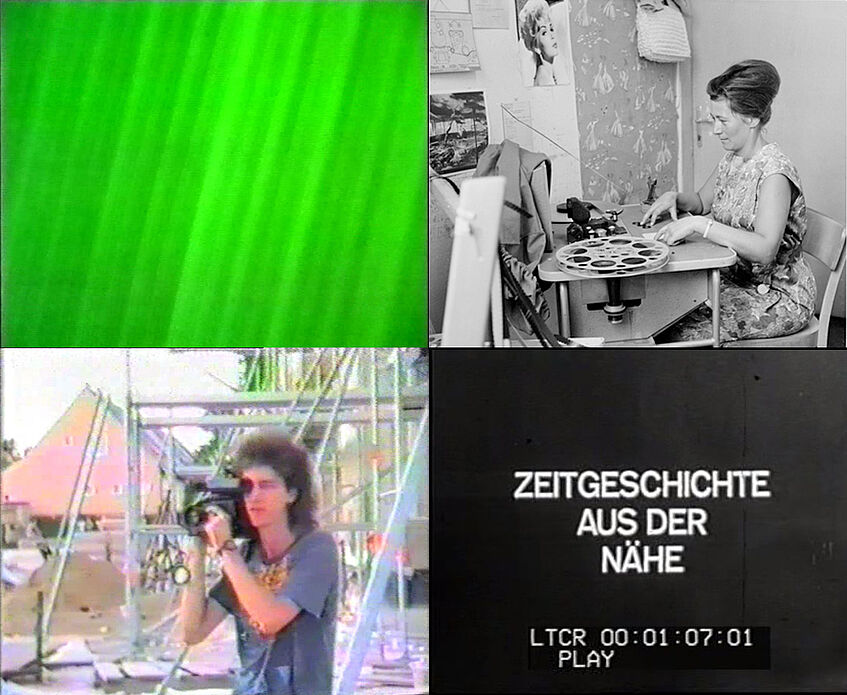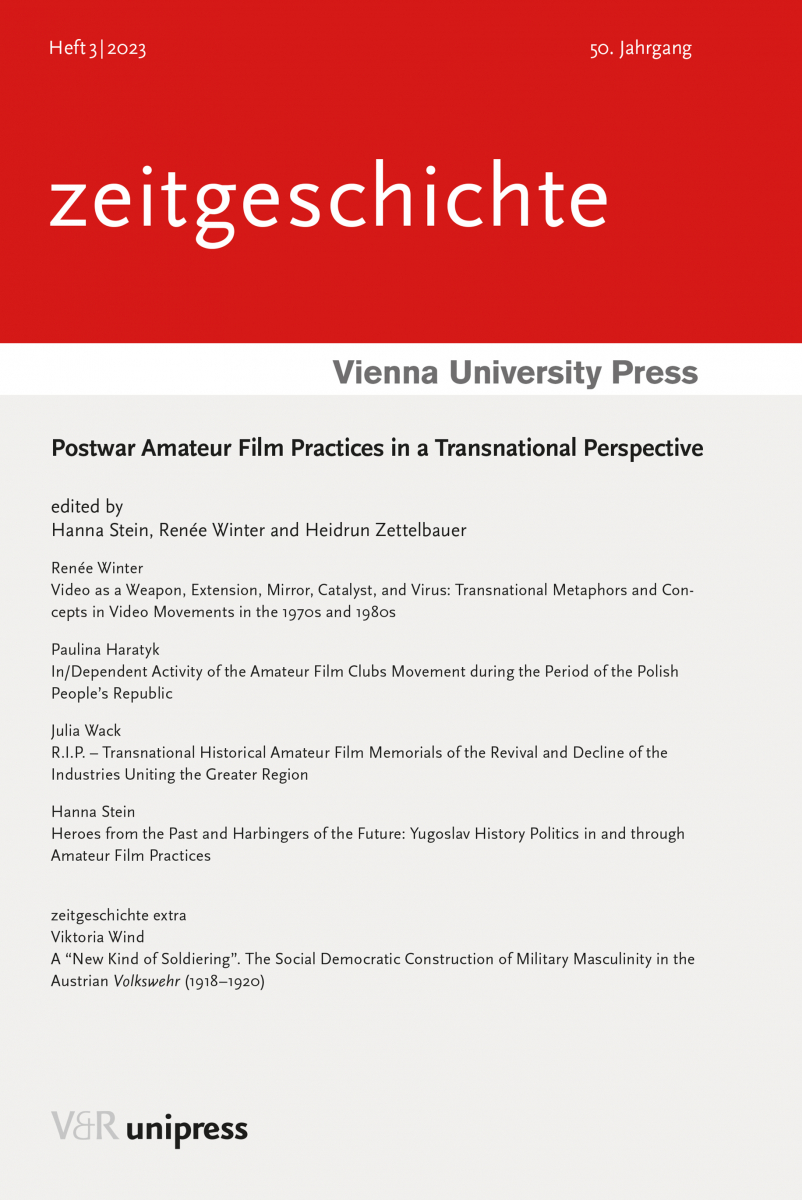
im Uhrzeigersinn:
Videofeedback 1994.
Cutterin Maria Baumann am Schneidetisch, 1963, Fernseh-Archiv des ORF, Bildarchiv Austria.
Zeitgeschichte aus der Nähe. Teil 2: 1938-1945, ORF 1962, ORF-Archiv.
Home-Video, Gänserndorf, 1989 (vermutlich).
Media and Contemporary History
The mediatisation of politics and society in the 20th and 21st century requires a broad and diverse examination of media and changing historical media constellations in contemporary history research. Deepening our knowledge of the relationship between media and contemporary history and imparting critical media literacy are therefore important components of contemporary history research and teaching at the Department of Contemporary History at the University of Vienna. Critical discourse between contemporary history and the public is important to us, as is a reflection on changing public spheres based on contemporary history and media theory in the context of the digitalisation of the 21st century.
The Media and Contemporary History focus builds on the previous research and teaching traditions of the Vienna department and cooperates in a variety of ways with the key research area Visual History and Cultural History.
This includes a profile specific to Austria in connection with internationally oriented and networked research in the field of audio/visual history. In a methodically open and interdisciplinary way, representations of history, the history of individual media and the power of media to shape history are examined in specific national, regional and global contemporary historical contexts. Analyses of photographs, television programmes, films and videos make their significance for cultures of remembrance and the politics of history clear. The historicisation of digital and interactive media and communication technologies and their examination with regard to questions of cultural, technical, gender and political history enables a better understanding of social media as historical phenomena. In recent years, amateur media users have increasingly come to be seen as historical actors. The "use" of media in the private sphere is part of the transformation of technologies of the self in the late 20th century. Focusing on the democratisation and empowerment potential of collective and individual media practices, as well as examining media as agents of participation, exclusion, surveillance, identity formation, (self-)optimisation or community building, enables a critical understanding of the major transformation processes of the 20th and 21st centuries. A perspective on media as knowledge technologies understands them both as a condition and as a product of historical processes of knowledge production and thus offers close links to research areas in the history of knowledge and science.
The interdisciplinary master's programme in Contemporary History and Media offers, based on contemporary developments and case studies in the field of international and national media in the 20th and 21st centuries, an academic theoretical and practice-oriented approach to multi-layered and applicable media literacy. The course provides a job-qualifying education and theoretical as well as practical knowledge in the responsible handling of media and the reality they create.
Important national and international media collections and media archives are accessible at the Contemporary History Library (including the Visual History Archive VHA ORF ARCHIVS or the Austro-Dok, a collection of media reports focusing on Austrian domestic and economic policy from 1979 to 1993. The so-called "Gaupresse" archive Vienna, a collection of newspaper clippings from the NSDAP-Gauleitung Vienna, can also be viewed both physically and digitally.
As of 1/2024



